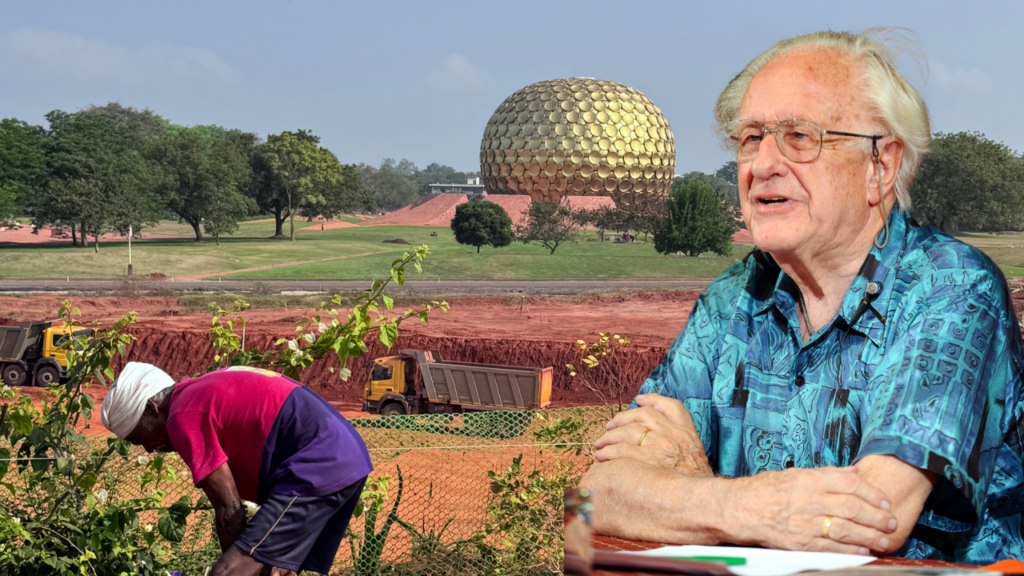In Memory of Johan Galtung: An Inspiration for Fundamental Peace and Happytalism
JOHAN GALTUNG MEMORIAL, 26 Feb 2024
Luis Gallardo - TRANSCEND Media Service
20 Feb 2024 – Johan Galtung, often hailed as the father of Peace Studies, left behind a rich legacy that continues to inspire and guide those committed to understanding and fostering peace worldwide. My journey in Peace Studies, notably at the Richardson Institute in 1995, was profoundly shaped by Galtung’s mentorship and his innovative concepts, especially his notion of positive peace. This inspiration led me to pioneer the concept of fundamental peace, grounded in the pillars of freedom, consciousness, and happiness, and to introduce the world’s first program at the United Nations University for Peace, Gross Global Happiness, that intertwines peace and happiness at a systemic level.
Galtung’s groundbreaking work distinguished between negative and positive peace, where negative peace is defined by the absence of violence or war, and positive peace is characterized by the presence of social justice and the integration of human society. He argued that true peace requires more than just the cessation of conflict; it necessitates the building of societies that foster individual potential and well-being. This vision of peace was revolutionary, highlighting the insidious effects of structural violence—social structures that constrain individuals from reaching their full potential.
Inspired by Galtung, my development of fundamental peace builds on the idea that peace cannot be narrowly defined or achieved. Instead, it requires a comprehensive approach that addresses the root causes of violence and promotes an environment where freedom, consciousness, and happiness can flourish. This holistic view acknowledges that peace is inextricably linked to the inner state of individuals and the societal conditions that support their well-being.
Incorporating disciplines such as positive psychology, mindfulness, and contemplation, my work extends Galtung’s analysis of structural violence into the realms of personal growth and societal happiness. This integration forms the core of Happytalism, a system that champions happiness as a fundamental societal goal. Happytalism is not just a theory; it is a practical framework for creating societies that prioritize the well-being of their citizens, recognizing that peace is deeply connected to happiness.
The program at the United Nations University for Peace, inspired by peace activists like Gandhi and Nelson Mandela and informed by philosophies such as the Tao and Aikido, is a testament to the transformative power of integrating peace and happiness. It embodies the belief that by liberating our minds from the chains of structural violence and societal constraints, we can pave the way for a world free from violence.
Currently, as I journey through Auroville, an experimental township founded on the principles of unity and collective flourishing envisioned by the Mother and Sri Aurobindo, I am reminded of Galtung’s aspirations for a peaceful world. Auroville represents an embodiment of what Galtung aimed to achieve and serves as a living example of the principles underpinning fundamental peace and Happytalism. This community’s commitment to synarchy, where governance is based on cooperation and collective well-being, echoes Galtung’s vision of a society where positive peace prevails.
In remembering Johan Galtung, we celebrate a visionary who not only laid the foundations for Peace Studies but also inspired generations to explore the depths of peace and violence. His teachings encourage us to look beyond the absence of conflict and envision a world where justice, freedom, and happiness are accessible to all. As we continue to build upon his legacy, we are reminded of the importance of pursuing a holistic approach to peace—one that champions the well-being of the individual as the cornerstone of a peaceful society. In doing so, we honor Galtung’s memory and continue his work towards creating a world where peace is not just a distant ideal but a lived reality.
_______________________________________________
 Luis Gallardo: Shaping the future of learning… and being. Founder and president of World Happiness Fest and World Happiness Foundation. Author of The Exponentials of Happiness & Happytalism.
Luis Gallardo: Shaping the future of learning… and being. Founder and president of World Happiness Fest and World Happiness Foundation. Author of The Exponentials of Happiness & Happytalism.
Tags: Johan Galtung, Obituary
DISCLAIMER: The statements, views and opinions expressed in pieces republished here are solely those of the authors and do not necessarily represent those of TMS. In accordance with title 17 U.S.C. section 107, this material is distributed without profit to those who have expressed a prior interest in receiving the included information for research and educational purposes. TMS has no affiliation whatsoever with the originator of this article nor is TMS endorsed or sponsored by the originator. “GO TO ORIGINAL” links are provided as a convenience to our readers and allow for verification of authenticity. However, as originating pages are often updated by their originating host sites, the versions posted may not match the versions our readers view when clicking the “GO TO ORIGINAL” links. This site contains copyrighted material the use of which has not always been specifically authorized by the copyright owner. We are making such material available in our efforts to advance understanding of environmental, political, human rights, economic, democracy, scientific, and social justice issues, etc. We believe this constitutes a ‘fair use’ of any such copyrighted material as provided for in section 107 of the US Copyright Law. In accordance with Title 17 U.S.C. Section 107, the material on this site is distributed without profit to those who have expressed a prior interest in receiving the included information for research and educational purposes. For more information go to: http://www.law.cornell.edu/uscode/17/107.shtml. If you wish to use copyrighted material from this site for purposes of your own that go beyond ‘fair use’, you must obtain permission from the copyright owner.
Read more
Click here to go to the current weekly digest or pick another article:
JOHAN GALTUNG MEMORIAL:
